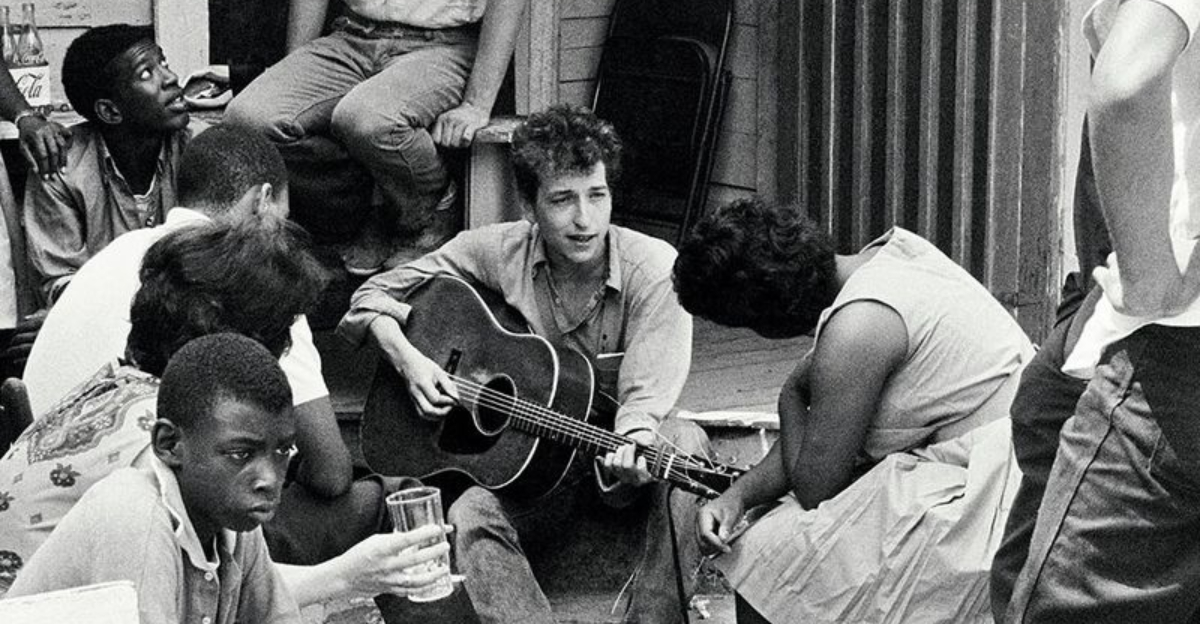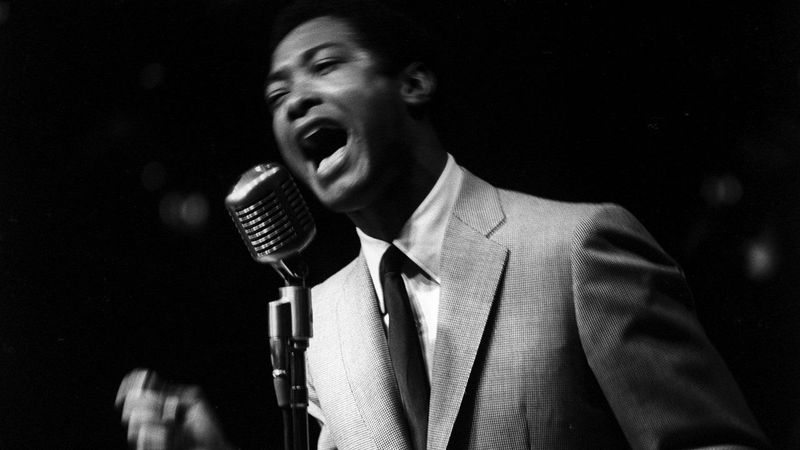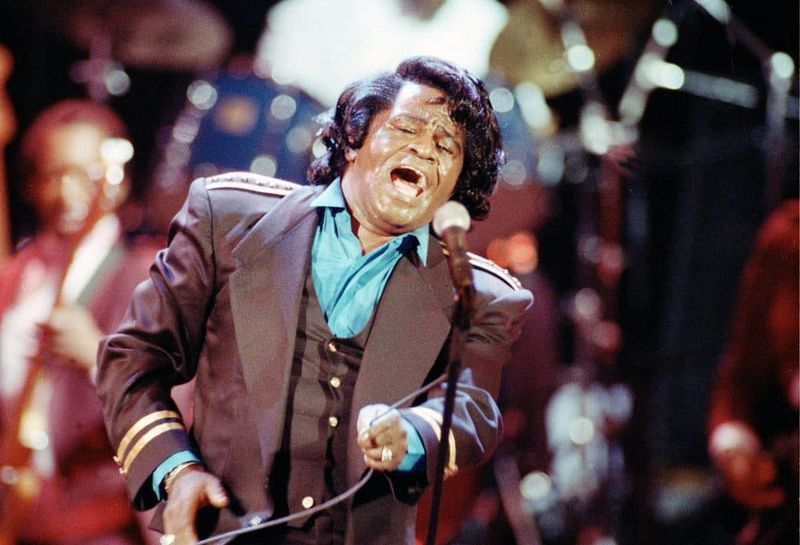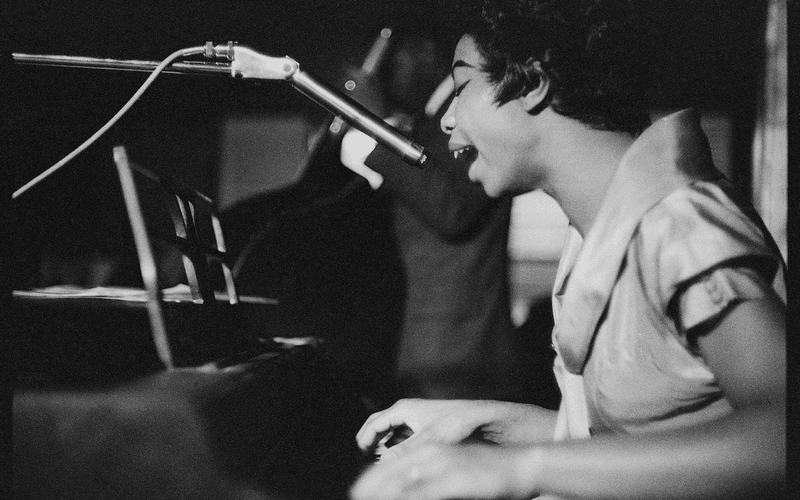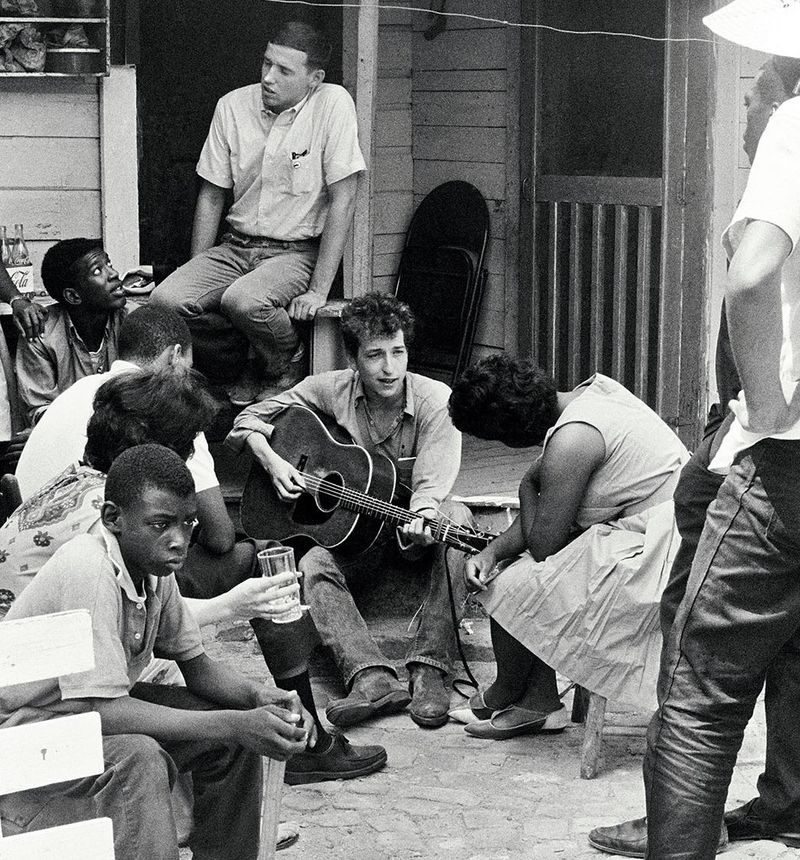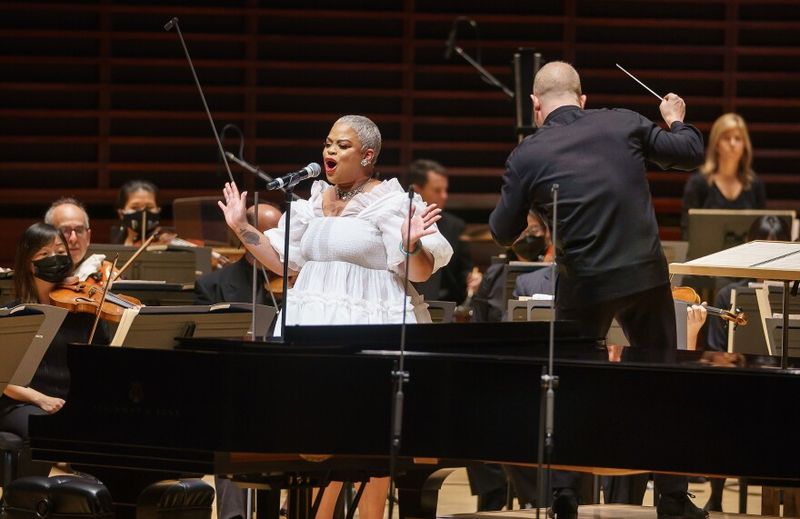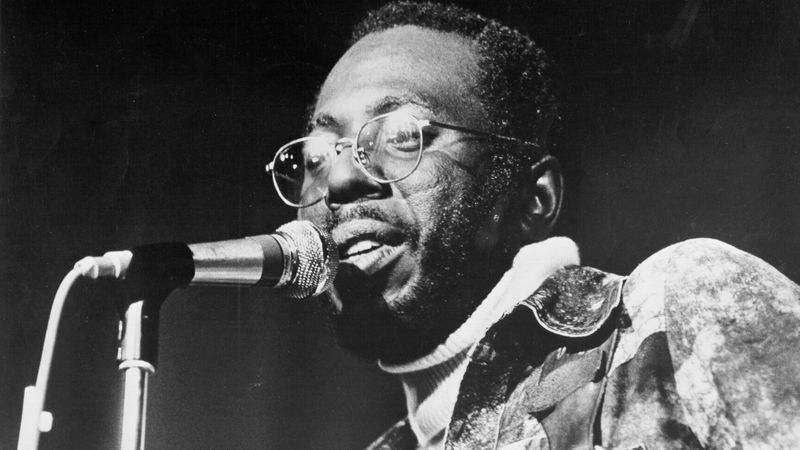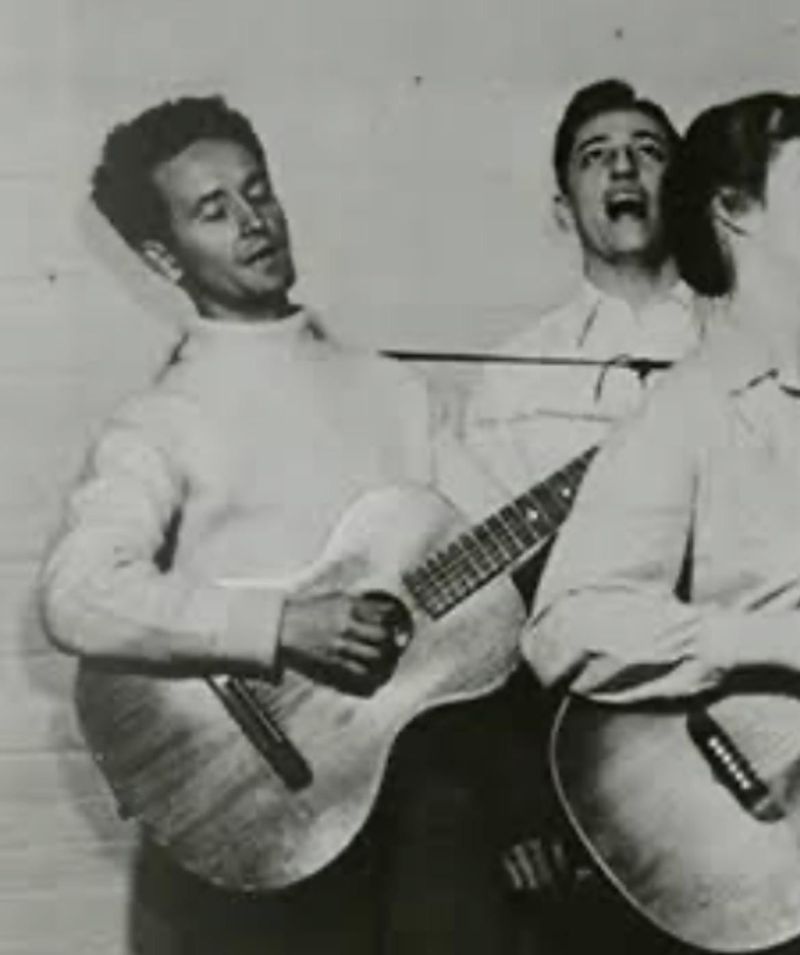Discover the profound impact and the untold stories behind ten pivotal civil rights anthems that have shaped America’s history. These songs, each with its unique narrative and power, have been more than mere melodies; they have been rallying cries for justice, equality, and change.
From the haunting melodies of Billie Holiday to the empowering messages of James Brown, these anthems continue to inspire and resonate across generations.
Join us as we delve into their stories and understand how they became anthems of a movement that changed the course of history.
1. We Shall Overcome
Renowned for its resilience, ‘We Shall Overcome’ emerged as a profound voice during the Civil Rights Movement. This hymn was echoed at marches, sit-ins, and rallies, symbolizing hope and unity. The song’s origins trace back to the 1940s when it was sung by striking tobacco workers.
Adopted later by civil rights leaders, it became an anthem of triumph over adversity. Dr. Martin Luther King Jr. echoed its words, “We shall overcome,” during a poignant speech in Selma, 1965. Its simple yet powerful message has made it timeless, continuing to inspire those who fight for justice.
2. A Change Is Gonna Come
Sam Cooke’s ‘A Change Is Gonna Come’ resonated deeply during the height of racial injustice. The song, with its powerful message of hope, became a beacon for those yearning for equality. Cooke, inspired by personal experiences, notably being denied entry at a whites-only motel, penned this stirring ballad.
Tragically, it was released posthumously, but its message reverberated through the civil rights movement.
The song’s soulful melody combined with heartfelt lyrics captured the struggles and aspirations of African Americans, cementing its place in history as a timeless anthem for justice.
3. Say It Loud – I’m Black and I’m Proud
James Brown’s iconic ‘Say It Loud – I’m Black and I’m Proud’ was more than a song; it was a declaration. In the wake of Dr. King’s assassination, it offered a fierce message of empowerment. Brown recorded this anthem to inspire Black communities to embrace their identity with pride.
While its bold tone sparked debates among civil rights leaders, it ignited a new wave of cultural pride and self-respect. The song’s infectious beat and spirited lyrics became a rallying cry for change, symbolizing strength and unity during a tumultuous era.
4. Mississippi Goddam
Nina Simone’s ‘Mississippi Goddam’ was a powerful protest song born from fury. Written in under an hour, it was her response to the murder of Medgar Evers and the Birmingham church bombing. Simone’s lyrics, both satirical and direct, challenged societal norms and called for urgent change.
Radio stations in the South, refusing to air it, destroyed the records. Yet, the song’s raw emotion and defiance turned it into a symbol of artistic resistance.
Simone’s bold stance and unwavering voice made ‘Mississippi Goddam’ an enduring anthem of the civil rights struggle.
5. Strange Fruit
Billie Holiday’s haunting rendition of ‘Strange Fruit’ exposed the grim reality of racial violence. The song, based on Abel Meeropol’s poem, depicted the brutal lynching of African Americans. Holiday’s emotive delivery turned it into one of the earliest anti-lynching anthems.
Despite facing career risks and harassment from authorities, she performed it fearlessly. The haunting imagery and evocative lyrics left audiences in awe, compelling them to confront the harsh truths of the Jim Crow South.
‘Holiday’s courage in singing ‘Strange Fruit’ marked a pivotal moment in musical activism and civil rights history.
6. The Times They Are A-Changin’
Bob Dylan’s ‘The Times They Are A-Changin’’ became an anthem for change, embraced by civil rights activists. Though not written for the movement, its lyrics resonated with those demanding progress. Dylan performed it at the 1963 March on Washington, just before MLK’s iconic speech.
The song’s verses, urging adaptation and forward-thinking, captured the spirit of a generation. Its universal message of transformation transcended boundaries, making it a timeless call for societal evolution.
Dylan’s contribution to the civil rights era through this song remains a testament to the power of music as a catalyst for change.
7. To Be Young, Gifted and Black
Inspired by playwright Lorraine Hansberry, Nina Simone’s ‘To Be Young, Gifted and Black’ offered an uplifting message of pride. Written after Hansberry’s death, Simone aimed to instill self-worth in Black youth. The song’s celebratory and empowering tone resonated in Black schools and cultural gatherings.
Its message encouraged a generation to embrace their heritage with confidence. Simone’s soulful voice and evocative lyrics turned it into a cultural anthem, echoing the beauty of being young, gifted, and Black.
The song continues to inspire and uplift, serving as a timeless testament to Black excellence.
8. Lift Every Voice and Sing
Known as the Black National Anthem, ‘Lift Every Voice and Sing’ has been an enduring symbol of resilience and hope. Written by James Weldon Johnson and J. Rosamond Johnson, it was first performed in honor of Abraham Lincoln’s birthday.
Adopted by the NAACP in 1919, its harmonious blend of melody and meaning made it a staple at civil rights rallies.
The song’s powerful call for freedom and justice transcends its origins, continuing to inspire generations with its timeless message of unity and perseverance.
9. People Get Ready
Curtis Mayfield’s ‘People Get Ready’ offered spiritual solace and hope. Blending gospel with soul, it became a quiet anthem of readiness for freedom. Mayfield, drawing inspiration from church music, created a song that uplifted and united those fighting for civil rights.
Dr. King often used it to inspire marchers, dubbing it the movement’s soundtrack. The song’s gentle yet powerful message continues to resonate, capturing the essence of faith and anticipation for a brighter future.
Mayfield’s contribution through this song remains a cornerstone in the history of musical activism.
10. Blowin’ in the Wind
Bob Dylan’s ‘Blowin’ in the Wind’ posed thought-provoking questions about peace, war, and freedom. Though Dylan didn’t see himself as a protest singer, the song became emblematic of the civil rights era.
Adopted by folk artists like Peter, Paul, and Mary, it was performed at the March on Washington. The song’s rhetorical questions and simple melody resonated deeply with activists.
Dylan’s youthful insight captured the challenges of the time, making it a timeless anthem for those seeking change.
The song continues to inspire reflection and action, echoing the pursuit of justice.
